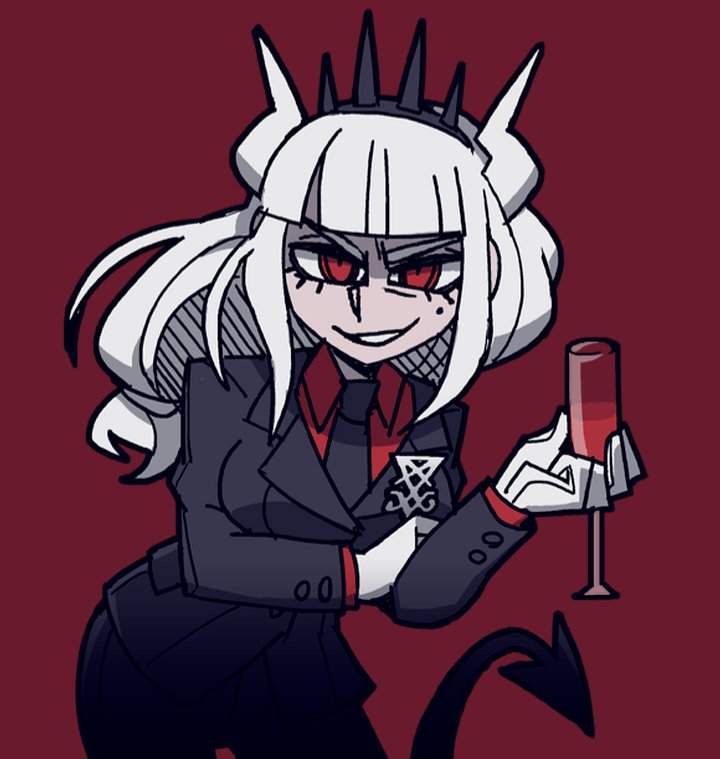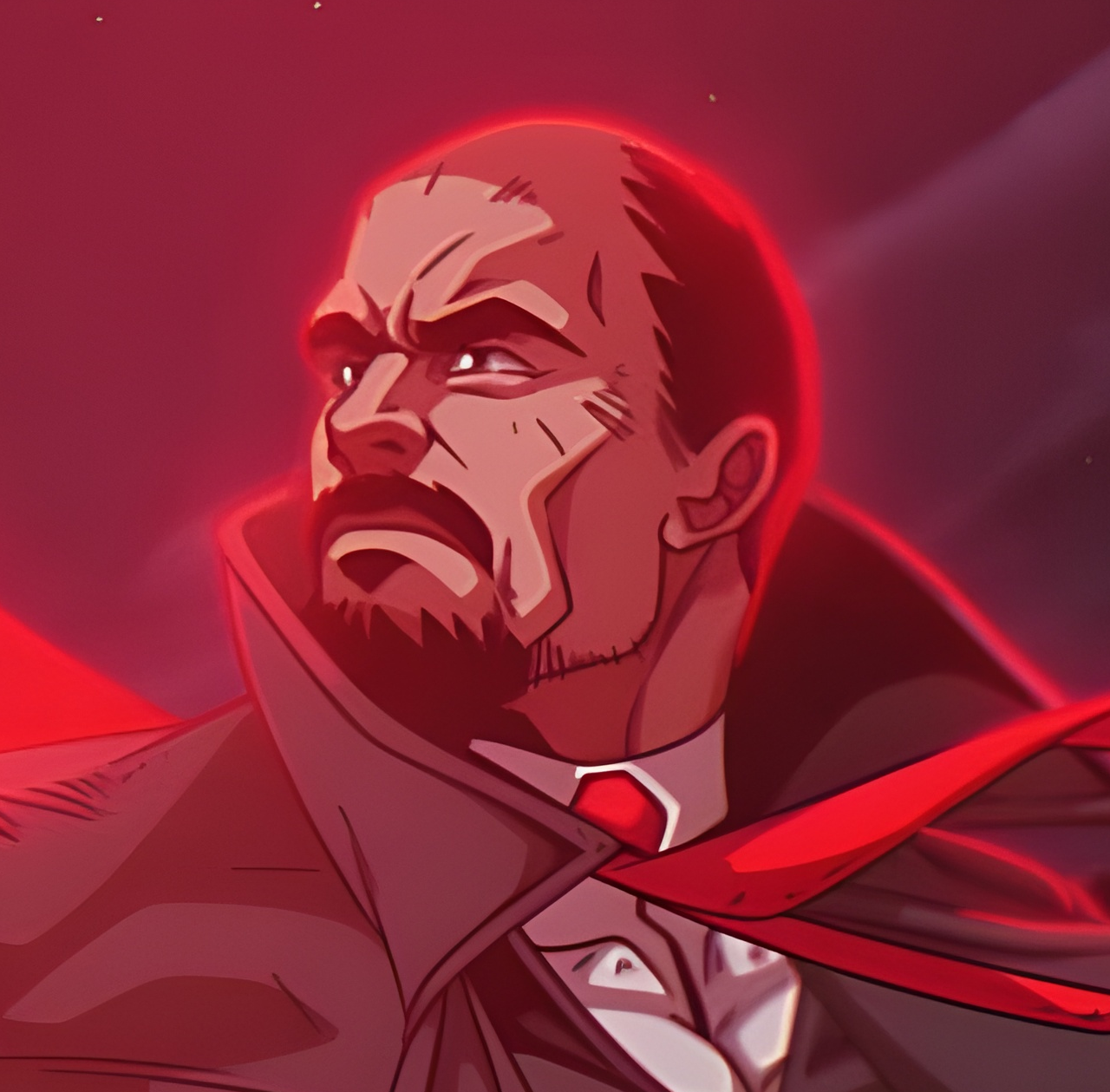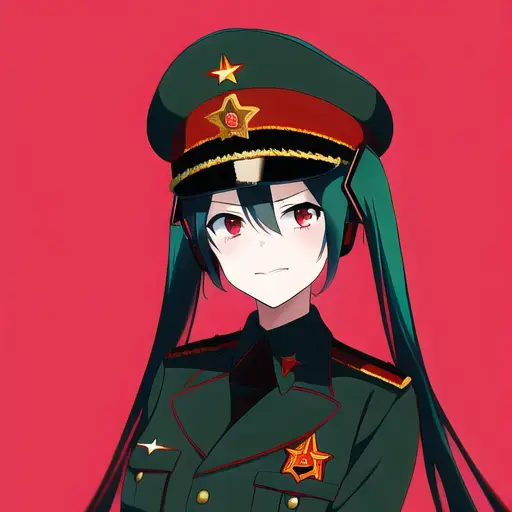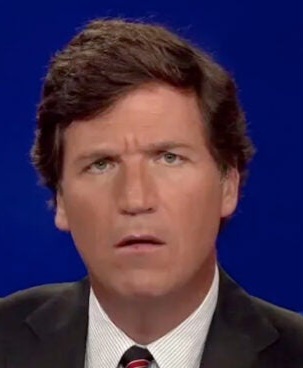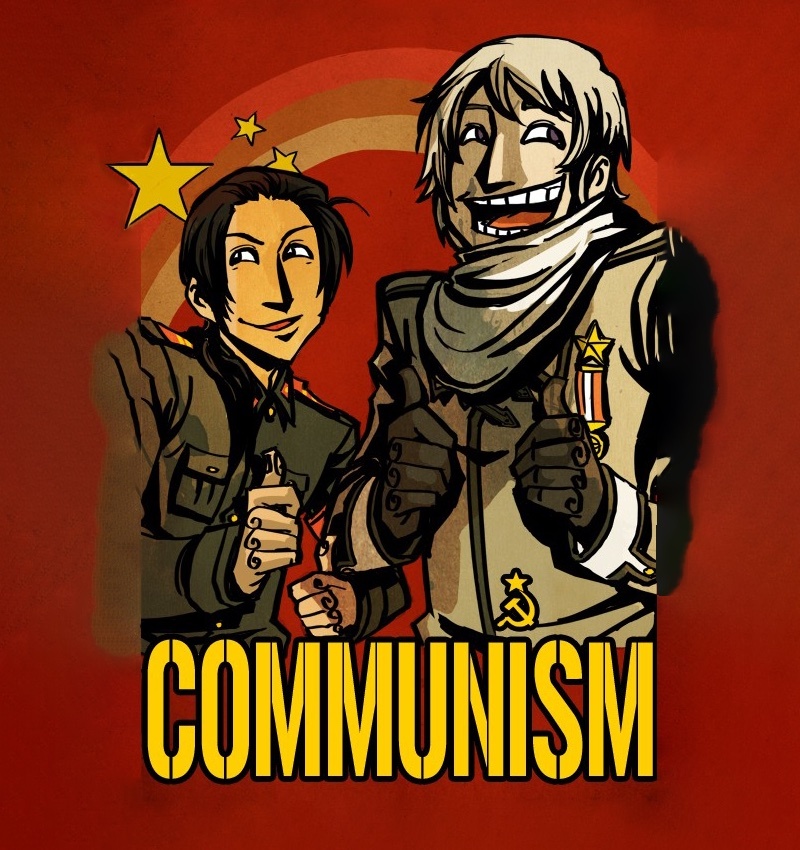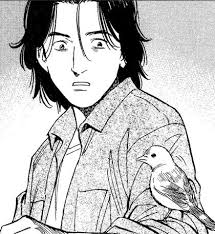I know historical hindsight is 20/20, but how did no one bully this guy into giving up his moronic “de-stalinisation” policy? Like the SU was built by Stalin and now suddenly hes satan incarnate? No wonder SU citizens lost faith in the party over time, how can you trust a bunch of weather vanes?
If you think Khruschev was bad, you should dig into Gorbachev and read Vladislav Zubok’s Collapse. Just page after page of a deluded man making the stupidest decisions possible and no one stopping him for reasons that are hard to wrap your mind around.
they actively wanted to undo socialist progress, ignored the populace, and worshiped the west
what could go wrong?
god i wish all of these fucks died at birth
deleted by creator
I think the main things to understand are, first, that the SU was already mainly controlled by revisionists before Stalin even died, reducing Stalin to a borderline figurehead for revisionists to work under. Secondly, the Secret Speech included extensive deception in its accusations against Stalin and co., with a very long list of supposed crimes that were “not previously known” because they either didn’t happen at all or didn’t happen as Khrushchev depicted them, which contributed to making Stalin look monstrous and therefore make destalinization look appealing. Third, Khrushchev purged high-profile supporters of Stalin, most notably Beria, which really made it less viable and less appealing to oppose destalinization. Lastly he kind of did get pressured out of office eventually, not because of destalinization but for the adjacent reason that he just kind of didn’t know what he was doing, which is only to be expected from someone like him.
Cause purges put fear in party functionaries, and guy appears (who signed orders as well, mind you) saying no more purges, you can do whatever ;) and thus cements his power. Who cares it shoots any credibility dead in the world (and there is a difference between owning mistakes and exaggerating them to cast shadows over predecessor).
Cynical theater fortifying power inside the party (cause no reprisal will come for your indiscretions), and crashing it elsewhere. But the blame lies on stalin as well, especially after ww2 the guy could have hit some system stability literature, he was close to unimpeachable.
guy appears (who signed orders as well, mind you) saying no more purges, you can do whatever ;) and thus cements his power
Except destalinization also included purges
Not really addressing your main point, but I think the Chinese really hit on something rhetorically by saying x leader was 70% right and 30% wrong.
Khrushchev Lied
People died
I don’t remember the source, but I always think back to that Stalin quote where he said he felt like a cult of personality was being built around him, with the aim that it would be used against him eventually. It seems like his suspicions were true, since that is exactly what happened after his death.
Reading about things like him being referenced in the national anthem, or the naming of Stalingrad, as a couple examples, there’s always a note that he objected to it before it was approved over his objection. Of course that’s usually portrayed as him putting on a show after ordering the things himself, but it seems to line up with the idea that it wasn’t being pushed by him, since he’s noted as disapproving of those kinds of things every time I’ve read about them.
the more i’ve read the more i believe he was positively riddled with stress and anxiety over that kind of stuff

he knew where it was leading and there was nothing he could do to stop it. he didn’t seem to be enjoying it at all
Something I’ve noticed about how bourgeois historians treat Stalin is how they always assume the worst motives without any basis other than he must have always had the worst motives. I’m not talking about the hardcore “Stalin was a totalitarian monster” types, I mean the historians who actually try to be reasonable and even-handed. But even they just assume yeah, Stalin must’ve orchestrated all that. And they have no basis for that assumption, other than just “we have to assume the worst about Stalin at all times because he’s Stalin”.
Military support of Khrushchev allowed him to coup the government. He made up a bunch of bullshit, purged the last Bolsheviks, and then started fucking up the country. Khrushchev then did every thing he accused stalin of doing and centralized power, ignored the party, and just did whatever.
The people did not like corn boy, and a huge amount opposed de-stalinization, but Khrushchev crushed these uprisings violently. Censored the press even more from socialist works, and allowed liberalism in more. Gromyko and other moderates supported this change because they’re careerist fucking bastards.
Stalin should have purged the soviet union again in 1950
Stalin should have purged the soviet union again in 1950
looking at the evidence for a purge not catching the guy who turned out to be a problem: what if we tried again and the bad guy was even more in charge of the direction this purge could take? have we considered that maybe soviet purges were not best practices?
deleted by creator
Removed by mod
deleted by creator
oh so thats what happened lol
nah, purges are a necessary thing. reactionaries and revisionists will always be entering the party, as seen with kruschev and gorbachev, so there must be ways to eliminate them if necessary. I dont think though that they need to be violent, just demotions or firing works plenty fine.
if Khrushchev’s allies were silenced before he could use them, then he wouldn’t have been much of a problem anyway.
I dont think though that they need to be violent
i’m not criticising the idea of kicking people out of parties, i’m talking about the executions of innocent party members and military officers that was allowed to happen. without a structural change to the forms of party security and discipline, there is no reason to believe the same dysfunctional tool would be successful if applied again.
deleted by creator
but but but muh free market
the soviet union was too nice to the intelligensia, and at the same time too restrictive. They should allow critique but along socialist lines, but censor nationalism and reactionary tendencies.
Stalin was too fuckin nice to the kulaks and religious class
What’s frustrating was that it happened along racial lines, too, specifically favoring ethno-nationalism in the republics, and scapegoating ethnic minorities as “stateless cosmopolitans” to be removed in order to secure border regions- and allow for compliant ethnicities to take their place. it just allowed shitty people who were okay with going along with that to gain power and influence
Khrushchev then did every thing he accused stalin of doing
that was already the case. Khrushchev could accurately be called, even by anti-communists, “Stalin’s hatchet-man” who went above and beyond what was asked of him (or wanted of him). Half of the shit that he threw in Stalin’s lap ran through him first or he took active initiative in. Half of the people persecuted or shot in Ukraine leading up to and in the early days of the Nazi invasion were ran by and ordered by him. The original nationalist founders of the Plast scouting group of Ukraine (which produced Bandera and Shukhevych and varying other figures, as well as I’m sure also normal people) along with a couple other accused nationalists were shot before the evacuation in the face of the Barbarossa invasion and the order itself was via an NKVD telegram from Ukrainian and Belarusian NKVD addressed to and signed by Kruschev for permission. I recall also reading somewhere though don’t remember where that Kruschev was one of the people most heavily pushing for Stalin statues and posters everywhere and cities to be renamed after Stalin all the time, while Stalin had been quoted numerous times to not deify or worship individuals, and to not compare him even to Lenin, etc.
Makes you wonder how many of the nationalists and reactionaries Khrushchev let out of prison or exile as “victims of Stalin’s paranoia” he himself sent in the first place.
god i fucking hate corn boy, he fucked up almost everything he did. 1956 Hungary was only happening because of Khrushchev’s forced ‘destalinization’ idiocy.
deleted by creator
It never fully left to need to be “reintroduced”. It had only been a few decades since the revolution — the scars of the old society don’t dissipate that quickly and the struggle continues. As Lenin said a decade or two is a period of time so insignificant in the scheme of world history it is a trifle; and it is a serious theoretical error to measure political realities by the yardstick of world history. As well the war killed a lot of the most vigorous and energetic and politically dedicated youth who would have replaced them in the coming generations.
What Khrushchev did (on top of severing connections to the past which inherently breaks materialist continuity) was legitimize liberal ideology (dangerously doing so with a Marxist mask) and cease struggling against it, instead declaring victory, and as such undermining vigilance and diligence, allowing it to reassert itself without resistance — or even knowledge half the time; after all, if socialism won in the USSR, why ruthlessly criticize all that exists including our own ethos?
There was obviously attempts internally as well as the fundamental splits of the PRC and Albania from the USSR on the matter, and the split of the general international movement.
But ultimately you can’t just bully the men with power out of power, and the resistance from the people was scattered and able to be dealt with individually in turn, and there were plenty of opportunists prepared to take positions with Khruschev for personal gain or perceived stability.
Removed by mod
Why wouldn’t people just make good criticisms of the general secretary that would be received well? Are they stupid?
What sort of criticisms got purged?
Nikolai Vavilov, a hero of soviet science and creator of hardy strains of wheat, was purged for believing genetics was real
was purged for believing genetics was real
That’s a pretty interesting claim and sounds pretty wild. Where can I read about the soviets purging genetics believers? You genetics guys gotta be careful ya know.
Read about Trofim Lysenko. He said the concept of a gene was bourgeois.
In private, however, Stalin ridiculed Lysenko’s view that every science had a “class character”, writing on a report by Lysenko: “Ha-ha-ha…And Mathematics? And Darwinism?”
The guy was legitimately a dumbass I don’t know why Stalin kept him around and edited his speeches. He caused a ton of harm to agriculture and genetics. His idea on grafting trees has to be one of the most foolish things I’ve read in a while. Even worse, Khrushchev got rid of him, then brought him back to do more damage for another decade, before getting rid of him again.
Source?
Editing Nature: Joseph Stalin and the “New” Soviet Biology in Isis vol. 84 (4) pp. 728-745 (1993) DOI: 10.1086/356638
https://libstc.cc/#/stc/id.nexus_id:9ko3mb04eo9nsyb1g6wp1by98
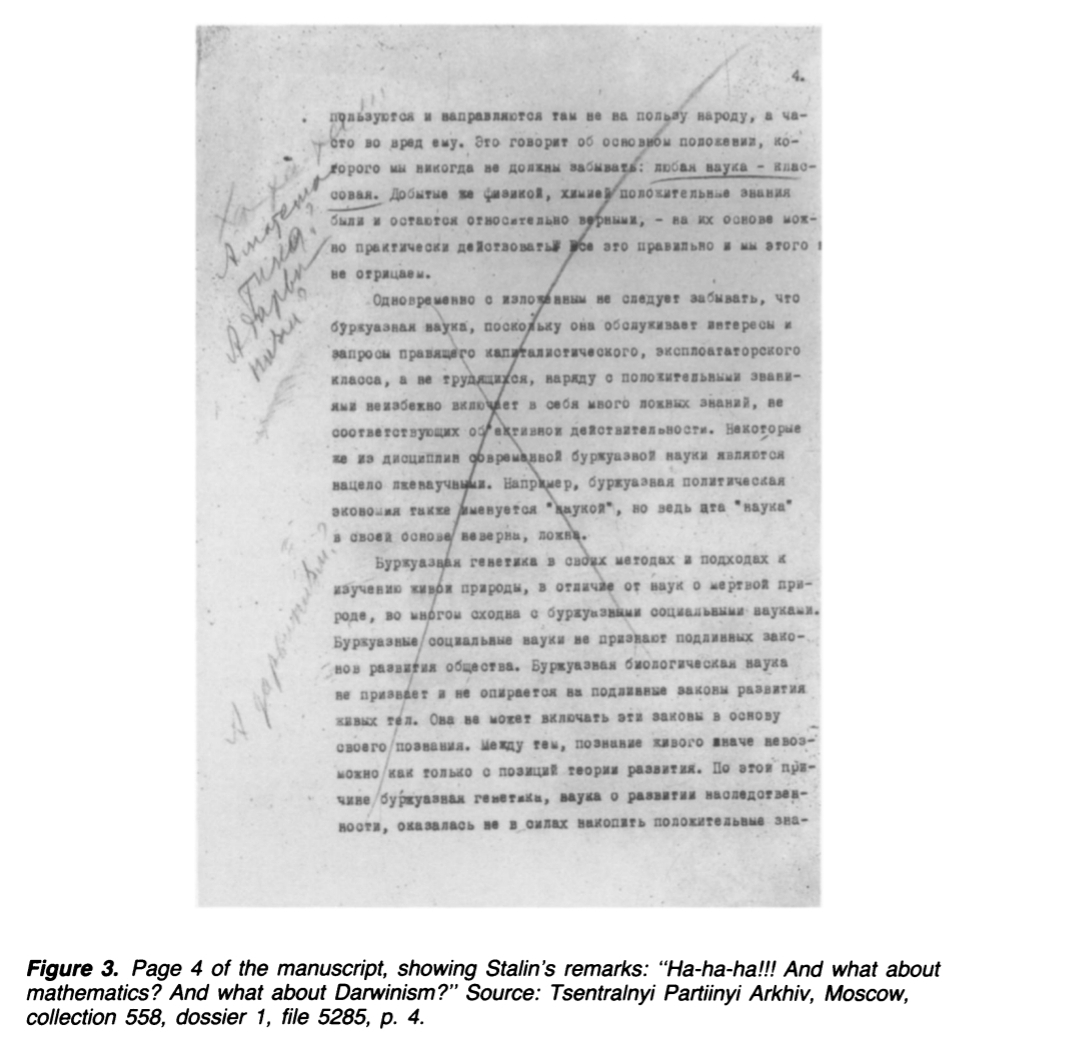
He sent this back to Lysenko to remove
Vavilov was awarded the Order of Lenin under Stalin and his research institute was established under Stalin as well (that Lysenko came up in).
There’s unfortunately not a lot of easily accessible information on the investigation of Vavilov, but if:
- you’re not a member of the party
- you spend a lot of time on international field trips to collect seeds
- you spend a lot of time in western countries for research collaboration, and
- you’re the head of the USSR agricultural institute during the Soviet famine of 1930-33
You should probably have resigned and kept doing field work.
It’s reported that Stalin was directly involved in Vavilov’s arrest, intervening to support Lysenko, but it’s unclear whether this was actually the case - 8 years later, Stalin edited a speech of Lysenko to remove references to what’s considered a key factor in Lysenko’s popularity
In his original manuscript Lysenko did portray genetics as “bourgeois science” and tried to reduce his conflict with geneticists to the contra-dictions inherent in class antagonisms. But in editing Lysenko’s text Stalin deleted the discourse about the class character of science and completely eliminated the word bourgeois in reference to science (it was used in Lysenko’s original text twenty-eight times).
the fact that kruschev came to power shows us that the party was completely degraded. It is clear that the party absolutely and completely failed to raise a new generation of quality communists, in no small part to ww2 killing 27 million soviets, but honestly im not willing to give them slack, if they had put significant resources into elevating women into future leaders they would have definitly been able to put quality communists in charge.
to be fair most of the communists died in ww2 because communist cadres and Kosomol youth brigades would commonly form militias to fight alongside the red army. They were often at the frontlines on the fight against fascism.
I agree thats why, but i still think you should maybe be keeping your strongest communists from dying, theres a reason princes did not often lead their armies into battle, the princes of the soviet union were the smart young cadres. I suppose they felt it necessary in the face of existiential danger of their country, and i empathise with that feeling, but i think keeping 1000 cadres away from the war to study as hard as possible so they could lead the restoration wouldnt have changed the outcome of the war probably
Beyond the power struggles within the CPSU that allowed Khruschev to consolidate his position, the main reason why he was “allowed” to get away with de-Stalinization is because of his abuse of trust. It’s the same thing with Gorbachev later, really, but especially so during Khruschev’s time. Both Soviet citizens and leftists around the world trusted the USSR in the 1950s. They recognized the heroic struggle and undeniable contribution of the USSR and its people in the war against fascism. They saw the blatant persecution and censorship against the left in the Western world following the ousting of Wallace in the 1944 Democratic convention and Truman’s coup as FDR’s successor. They trusted the CPSU to do the right thing.
There were, in essence, two camps in the left before the 20th CPSU Congress: those that had grievances with Stalin and initially saw some criticism of Stalin as not necessarily unwelcome until they later realized over time how far Khrushchev took it and the fallout; those that deeply admired Stalin and thus transitively trusted the CPSU which he led and built, meaning that when the CPSU under Khrushchev turned against Stalin himself, the latter group was completely paralyzed and didn’t know how to respond.
Many leading parties in the Comintern belonged to the first camp. Stalin completely alienated the Yugoslavs through his overreaction to Tito’s attempt at market socialism. The Communist Parties that fell into the Western NATO sphere of influence felt betrayed, especially Italy’s CPI and Greece’s KKE, over his abandonment of them through Stalin’s fears of provoking a WWIII. Stalin may have been right and the USSR deserved peace, but being right had its consequences as well for the Italians who he advised to hand over their arms to the soon-to-be NATO regime and his feuding with Tito which allowed the reactionaries to defeat the KKE in the Greek Civil War. Churchill claimed that he settled the division of Europe and the surrender of Greece with Stalin through a simple five minute chat and officiated with a napkin agreement.
The CPC themselves initially did not denounce Khrushchev because Stalin deeply let down the party through his advice in the 1920s of demanding the CPC to subordinate themselves to the KMT, which led to the 1927 massacre and purge by the fascist Chiang once he took over the KMT. Stalin also deeply distrusted the CPC following 1949 and thought they were a nationalist force and a “fake revolution,” a denial of socialist comradery which was deeply insulting to all the CPC’s heroic first generation like Mao, Zhou Enlai and Deng that fought off the Japanese and liberated China from the KMT. To his credit, Stalin was a man of principled integrity and when he was proven wrong after seeing the Chinese People’s Volunteers rescue the DPRK, he completely corrected course and apparently never again disagreed with Mao on the handling of the Korean War again, even to the point of always siding with Mao against Kim Il-Sung.
Also importantly, like Caligula in the Julian-Claudian dynasty of imperial Rome, Khruschev’s early years were seen as a “honeymoon” period. The SED in the DDR also chafed under Stalin because while they understood and agreed with the necessity and righteousness of German reparations to the USSR, the fracture of Germany meant that the DDR was forced to foot the entire reparations bill. The USSR absolutely deserved reparations but this forced the DDR into a catastrophic lose-lose “catch-22.” As the least developed region of the old Germany and only half the size of the BRD, the DDR was already in an imbalance with the Wessis. With the US sponsoring the Marshall Plan (which contemporaries largely only saw for its “benevolent” face value and failed to see as the self-serving financial imperialism it really was), the reparations to the USSR meant that the DDR-BRD economic dichotomy went from the DDR stagnating-BRD improving to DDR worsening-BRD improving. This later led to the material disparity and population flight that then forced the SED to construct the Berlin Wall. Khruschev annulled the reparations and this was widely appreciated in the DDR. With the CPC, he further extended Soviet aid to China meaning that his early years were the height of the Sino-Soviet alliance and this furthered the CPC’s hesitation at instantly denouncing Khrushchev.
This was the camp in the left that initially tolerated the criticism of Stalin. The other camp, those that trusted Stalin and the CPSU, were for the most part too completely stunned, when the latter turned on the former, to denounce Khrushchev. At “best,” this led to simply rejection of Stalin and a swerve towards following Khrushchev. At worst, this led to complete disillusionment with the entire socialist cause. How this occurred is best exemplied from the story of Eva Kaufmann, a SED party member, and her reaction to the 20th Congress as a youth in the FDJ, the Communist youth organization in the DDR.
“People who thought like me had no doubts that the new order was a good thing, so when I heard from a friend who wrote to me from West Germany that there were camps in the Soviet Union and people were being murdered, I said to myself, “That’s propaganda, it’s simply lies.” Then when the Twentieth Party Congress of the CPSU revealed the atrocities, it was a terrible shock, even through the reports about the terrible number of victims were not very clear. We were allowed to listen to Khruschev’s secret speech which was read out to us and it was clear to me that what was now being revealed would mean a very deep crisis for the whole communist movement for the socialist countries.”
The Twentieth Congress abused the trust of people in the institution of the CPSU to then destroy their trust in Stalin. As a consequence, they felt betrayed not only by Stalin but also the CPSU which had “hidden” his actions prior to the revelations. This had immense consequences through its inescapable logical conclusion: if even Stalin, who led the USSR to become the principal force that defeated fascism and liberated Eastern Europe, did all these things, then all future socialist leaders could also have the potential to turn out to be “criminals.” No one could trust the motives of any socialist leadership if they accepted the narrative of the 20th Congress that Khruschev put out, since Stalin “got away with it” during his own time and it was only through the voluntary disclosure of his successor that allowed “the truth to come to light.” This led to a damnation of any socialist leadership that was unfalsifiable and the sustained rise of the chauvinistic and smug Euro-“Communism."
As Kaufmann’s story also showed, Khruschev’s betrayal also legitimized anticommunist Western propaganda. Leftists were used to the propaganda barrage against the socialist cause and against the USSR and had generally learned to dismiss it. Because the most openly anticommunist regime was the fascist reich, the revelation of its own atrocities after WWII thus transitively debunked all anticommunist and anti-USSR narratives as propaganda in the eyes of most leftists. As Kaufmann shows, this allowed a cognitive dismissal of all subsequent anticommunist propaganda as the Cold War began. For the CPSU to reveal that not only did Stalin do wrong things but criminal things beyond even what Western propaganda alleged then legitimized anticommunist sources of information from the West. This led to blowback against the USSR and led to the schism between Khruschev himself and Western leftism after the 1956 intervention in Hungary because Western leftists felt compelled to question Khruschev’s rationale and bought the shrill Western narratives that the Hungarian reactionaries were mere “reformers.”
In the socialist world itself, many people were utterly disillusioned and lost their trust in authorities entirely. Nearly all the dissidents, reactionaries and soc-dem “reformers” that came out of the woodwork in the Gorbachev era, reading through their writings, directly attribute trace their own disillusionment with the socialist system through the common origin story of their shock at the “revelations” of the 20th Congress. Some people like Keeran and Kenny in “Socialism Betrayed” see Khruschev’s later, more “evenhanded” comment that "All of us taken together aren’t worth Stalin’s shit” (the truest thing he ever said) as a sign of desperate damage control, but it was far too late. A CPSU leadership collectively worth less than Stalin’s shit had turned the image of Stalin, the CPSU and socialism itself to shit. Later, the anti-Stalin agenda was used in the Gorbachev period as a powerful propaganda cudgel for the reactionaries to resmirch and sideline Marxist-Leninists, as can be seen from the ouster of Ligachev following his promotion of the letter by Leningrad chemist Nina Andreevya who defended Stalin. The Overton window had moved so far to the right in the USSR that this defence of Stalin was able to be used to purge Marxist-Leninists from leading government positions, directly causing the counter revolution that led to the collapse of the USSR.
The result is that beyond the works of Grover Furr and Domenico Losurdo’s “Making of a Black Legend," there are virtually no widespread English literature that portrays Stalin in a positive light. When even the USSR adopted the position of denouncing Stalin following Khrushchev, there was no opportunity for works that positively portray Stalin to be published. If you were an anticommunist, you were against Stalin. If you supported the USSR, you accepted their narrative about Stalina and thus you were also against Stalin. Only a few principled Marxist-Leninists denounced anticommunism and stood by Stalin’s side, but they were deeply marginalized with no institutional publishers to support their writings and this ideological isolation led many of them to become ultra-leftists. It also means that any history of the Stalin period, including all coverage of Soviet feats in WWII, is inescapably covered with tedious tirades against “Stalinism” in every second paragraph. As Keeran and Kenny write:
Among many friends of the Soviet Union an un-examined assumption grew that, after Stalin, the USSR was perfecting socialism. Khrushchev was better than Stalin. Gorbachev was better than Brezhnev. With the rare exceptions of Isaac Deutscher and Ken Cameron, few attempted to deal with the Stalin, Khrushchev, or Brezhnev periods in a critical but balanced way. Particularly in the case of Stalin, Soviet supporters gave up the effort of an overall assessment, perhaps because of its inherent difficulty, perhaps because such an effort could have no possible payoff, or perhaps because of an assumption that Soviet progress would make Stalin a historical anomaly of diminishing importance. The enemies of the Soviet Union readily filled this vacuum with shelves of books portraying Stalin as a monster or a madman. These caricatures in turn influenced the views of Communists whose only knowledge of the Stalin period was second hand.
Compare this to Deng’s formulation of 70%/30% for Mao, which he borrowed from Mao’s own profound 70%/30% formulation for Stalin. The trick was not to claim that Stalin was faultless and without blame: he made mistakes and as shown above, many in the Comintern thought those mistakes were fairly sizeable. Claiming Stalin was 100% right would have been laughably dogmatic and would have sounded insincere to those who thought they knew better. 70% right and 30% wrong was the perfect balance: Stalin saved the USSR from Hitler’s genocidal lebenstraum and his leadership led to the indisputable (until today) role of the USSR as the primary contributor to the defeat of Hitler-fascism and the liberation of Europe and his faults, no matter how large they seemed to anticommunist freaks, were dwarfed by this shadow. 30% is not too high as to compete with his achievements but not too low as to dismiss his faults either. This is the principled line that should have been adopted with Stalin and was adopted for Mao. As such, Chinese people can cognitively accept the idea of Mao’s faults without having their entire worldview shaken like what happened with Soviet people and global leftists following the 20th Congress, who the USSR itself stripped them of their weapons to defend against anticommunist propaganda.
This is how, despite all the same copycat anticommunist propaganda barrage against Mao and all the Ivy League and Oxbridge University Presses printing out endless slop attacking Mao about his “great famine” and the “tragedy” of China’s liberation, they’ve ended up screaming into the void because the CPC maintained the achievements of Mao, allowing for a coherent historical narrative that has the strength to reject Western propaganda assault. This is why the modern Western academic line of attack on China is to promote “historical nihilism,” which is basically begging Chinese people to be “nihilistic” and forget the entire coherent historical narrative they are taught and accept the West’s anticommunist revisionist propaganda instead. With the USSR, there can be surgical strikes on Stalin himself. With China, the only option to to slam impotently against the wall of China’s own history to try and get at Mao.
Mao’s portrait still hangs proudly in Tiananmen and up to this day, Western Marxist-Leninist authors still often publish positive historical accounts of Mao and many leftist movements that distance themselves from modern China itself like the Communist Party of Nepal-Maoist, Communist Party of the Philipines and Communist Party of India (Maoist) still nonetheless proudly call themselves Maoist parties. Through them, the term “Maoist" is a (chauvinistic) source of pride, distinguishing themselves and their “correct ideological stance” from normal Marxist-Leninists. The term "Stalinist,” however, through the disintegration of a counter-narrative, has been entirely appropriated by anticommunists as a slur.
This was an extremely informative read. It answered a number of questions I’ve had rattling in my brain that I just never dug around enough to get good information on. Thank you for these comments.
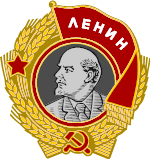
Amazing write up comrade
deleted by creator
I think the CPSU was completely damaged from the onslaught of WWII and there wasn’t anybody who could rebuild the party like Mao did with the CPC after the Long March killed the majority of CPC members. Stalin was way too old at that point and just wanted to retire. Being in a weakened and vulnerable state meant that opportunists can take advantage of personal and structural weaknesses within the party.
deleted by creator
this thread has been very depressing to read.
ბოდიში, სტალინ. შენი იმედი გავაცრუეთ



